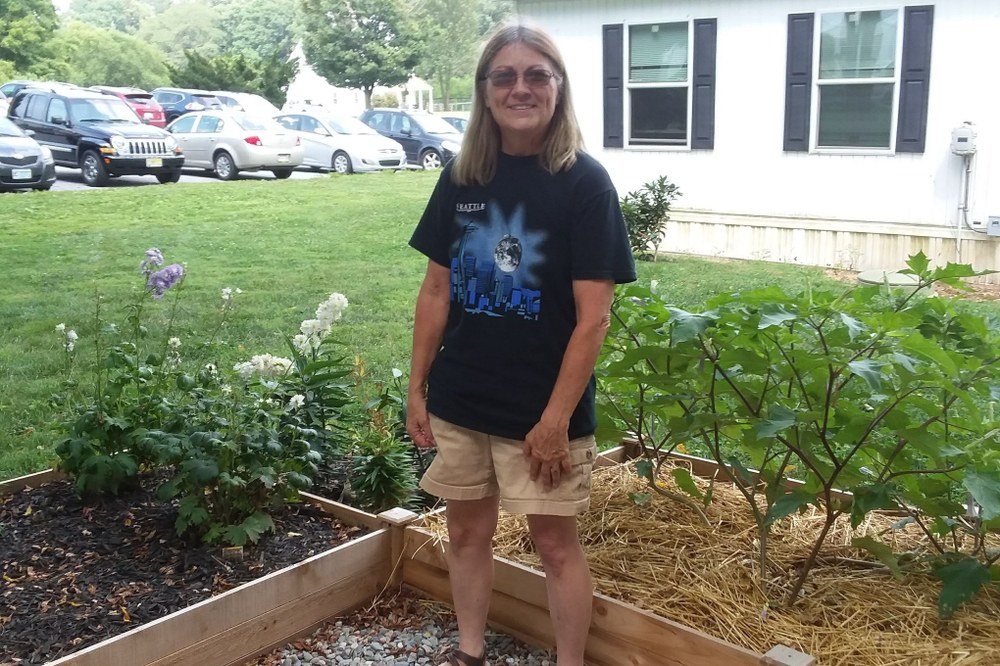Master Gardener worked with staff members at Penn Veterinary School's New Bolton Center to create a teaching garden of plants that are poisonous to large, domesticated animals.

Janet in garden during the first year
Dr. Elizabeth Woodward of Penn Veterinary School, approached the Chester County Master Gardeners for advice on planting a "Teaching garden" of poisonous plants. These are plants that are toxic to large animals. We met in early spring to analyze the site and Janet Paterson, Master Gardener, designed a garden that highlights plants that grow in:
- Pastures
- Woodland Meadows
- Home Gardens
Although the garden is in its infancy, more plants will be added as well as information tags that will "hot link" to toxicity info. These plants will be used by professors and veterinary students to help identify and treat large domesticated animals.
The complete plant list is below:
- Dicentra - bleeding heart
- Podophyllum - May apple
- Arisaema - jack in the pulpit
- Kalmia - mountain laurel
- Rhododendron
- Taxis - yew
- Aconitum - monkshood
- Pieris - andromeda
- Senecio - golden ragwort
- Allium - chives
- Delphinium
- Asclepius - milkweed & butterfly weed
Note: The garden location is separated from where the Center's animals live and where the public would be traveling with any visiting pets.

